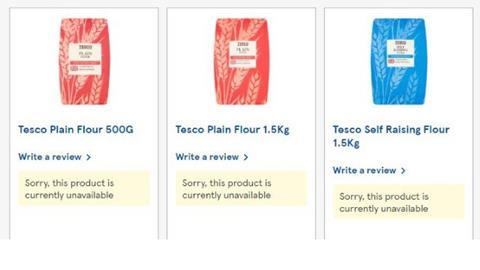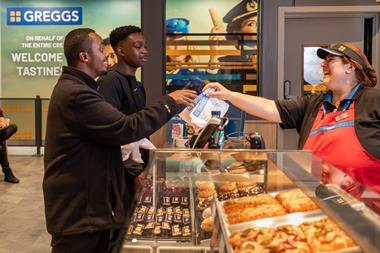
Retailers have been hit by a shortage of flour as demand soars in the coronavirus outbreak.
Many bags of flour have been out of stock in supermarkets in recent weeks as suppliers struggle to keep up with demand.
The problem has not been a shortage of flour, however, with many mills now having additional capacity following the shutdown of foodservice businesses such as Greggs and McDonald’s.
In a typical period, only around 4% of the total flour milled in the UK is sold through shops and supermarkets – with shoppers buying the equivalent to two million 1.5kg bags a week.
However, since the Covid-19 outbreak, regular bulk buyers and consumers have been purchasing much more than normal. According to statistics from retail trackers IRI, UK retail sales of flour were up 145% year-on-year in the week ending 15 March.
As a result, stocks have been quickly used up and many households have been unable to buy.
“In response, UK millers have been working round the clock – genuinely milling flour 24-hours-day seven-days-a-week to double the production of retail flour in an effort to meet demand,” said Nabim director Alex Waugh.
The equivalent of 3.5 million to 4 million bags had been produced weekly by running packing lines at maximum capacity, he added.
Production was limited, however, by millers’ capacity to pack into the small bags used at retail, and was only enough for 15% of households to buy a bag of flour per week, he added.
“One option is for retailers and wholesalers to stock larger bags of flour, which might be suited to more regular home-bakers. This would require a change in shopping patterns, however,” said Waugh.
“Otherwise, it will be a question of time before the surge in demand reduces enough for this enhanced level of production to meet requirements and allow stock levels to be rebuilt.”
































No comments yet